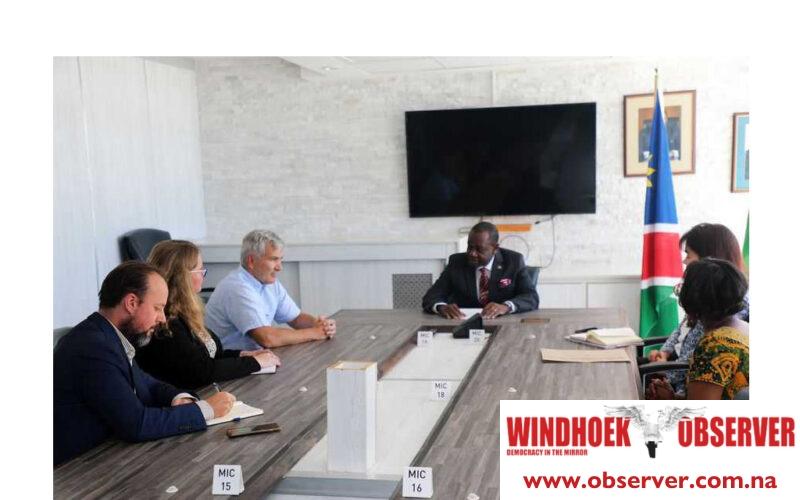Ester Mbathera
The Minister of International Relations and Cooperation, Dr Peya Mushelenga in a diplomatic move, summoned a delegation of the European Union (EU) and the Embassy of the Federal Republic of Germany on Wednesday.
The engagement followed the recent meeting between the envoys and the leader of the Independent Patriots for Change (IPC), Panduleni Itula, drawing attention to the delicate balance between diplomatic engagement and respecting the sovereignty of nations.
The German embassy posted a picture of their engagement on their Facebook page, stating they were meeting Itula “on behalf of the ambassadors of the European Union (EU) for an exchange on current affairs in Namibia.”
Mushelenga raised concerns over discussions that touch upon matters exclusively within the purview of the Namibian government, particularly when involving individuals not representing the government.
“While the Government has no objection with whom diplomatic missions accredited to Namibia engage, discussions on issues that are the sole preserve and prerogative of the sending and host governments, with a conversant not representing the Government of the Republic of Namibia, are deemed inconsistent with diplomatic practices and akin to interference in the domestic affairs of the country,” he affirmed.
He emphasised that Namibia respects diplomatic engagements between foreign missions and local stakeholders as well as the importance of adhering to established diplomatic relations.
Mushelenga reiterated the obligation of diplomatic missions to uphold these principles in their interactions within Namibia.
He further explained that Namibia’s expectation for the mission of their obligation to respect the established and universal principles as outlined in the Vienna Convention on Diplomatic Relations (1961).
According to Mushelenga, Namibia, despite being a small state, stands equal in sovereignty to larger nations.
Former Namibian ambassador to Germany, Pius Dunaiski described the meeting as a routine occurrence in diplomatic circles and it is normal within the framework of international relations.
He explained that such interactions often dive into political landscapes, especially during election years, to assess potential outcomes and shifts in power dynamics.
He suspects that the envoys’ actions were the result of instructions from their respective nations to assess realities on the ground.
“It is an indication that there are questions about the relationship of the EU and the Namibian government on the bilateral relationship
and that they deliberately played their political game to come to the fore and to tell Swapo that they are considering looking at the IPC. One should take it as a kind of a warning towards the Namibian government or Swapo for that matter, that they are looking at other parties as possible alternatives,” he said.
Dunaiski expressed some reservations about the manner in which the meeting was made public, questioning whether the objective could have been achieved through quieter channels.
Regarding whether President Nangolo Mbuma was aware of the meeting, the presidential spokesperson Alfredo Hengari said Mushelenga is within his province to initiate consultations with heads of missions in the country.
“In the execution of that mandate, President Mbumba as head of state is consulted and directed if and when necessary and depending on the gravity of the issues,” said Hengari.
Political analyst Rui Tyitende raised questions about the agenda of the meeting between Itula and the European delegation, pondering whether it was focused on Namibia’s political landscape or development priorities.
“More importantly, how does the minister know what was discussed and does he have the authority to summon the Ambassadors? If the said foreign Ambassadors had met with Martin Lukato of the National Democratic Party, would the Minister have taken the same steps? Either way, states have national interests and the EU and German governments have clearly outlined policy interests in Namibia and their policy outlook tends to align with the government of the day, or those they think can influence government direction and decisions in the future,” he said.
Tyitende suggested that the foreign ambassadors were likely cognizant of the political sensitivity surrounding their interactions, knowing that Namibia is going to the polls this year.
“We are in an election year, any form of moves by influential parties will be viewed with a heightened political lens. I am sure the foreign ambassadors were not oblivious to that fact,” he said.




